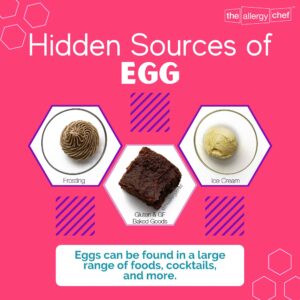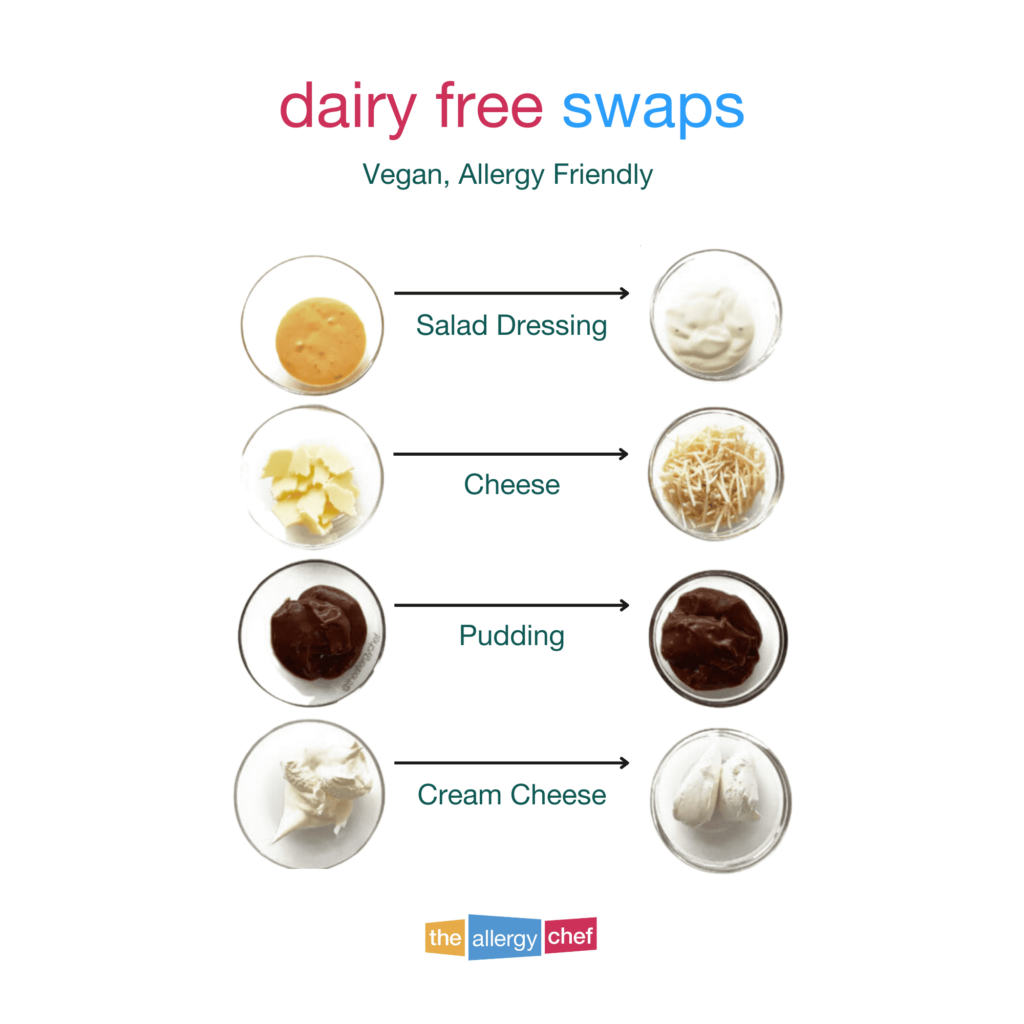If you have an egg allergy, the solution may seem simple: avoid eggs. It’s not always that easy though. First, know how sensitive you are. Here’s how we like to look at allergens:
- Is it in the main ingredients
- Is it a processing aid
- Is it on the equipment (shared equipment)
- Is it in the facility
- Is there transportation or storage exposure
- Is it in the packaging (common with gluten and corn)
Related: Dairy Free Swaps Article
Determine Your Level of Sensitivity
When it comes to levels of sensitivity, you’ll need to know what you can handle in terms of shared equipment and facilities. It really boils down to: can you handle trace amounts of the allergen?
No matter where you fall on the list/bell curve, it’s always safe to call/email companies and find out about their processing and production of a product.
For example, JUST makes a vegan egg substitute. Whilst this is great for the vegan community, JUST makes no claim to be safe for people with food allergies. Their primary market is the vegan community, and not those who are vegan via an allergy. I do appreciate that when I reached out to them they were very upfront about this.
I totally appreciate their transparency and if you can handle trace amounts of egg (and other major allergens) it’s an interesting product.
Related: Easy Cooking Video: Egg Free Omelet Recipe
Definition of Eggs
It’s kind of interesting that I sit here typing out the definition of eggs… I never dreamed this is what I’d do as a child.
When testing for an allergy, tests are generally indicating an allergy to chicken eggs. You can purchase eggs from duck, quail, and ostrich too. Those are the eggs you’ll most likely have available to you in stores.
Some people will be able to tolerate non-chicken eggs, and some won’t. When you’re new to all of this, it’s best to avoid all forms of eggs. Then, work with your medical team to have a better understanding of what would be good for you to trial, if anything at all.
Related: Over 600 Egg Free Recipes
Other Names for Eggs
On some labels you’ll see egg, whole egg, egg yolk, and egg white. These are usually referring to chicken eggs. Other names that can indicate egg include:
- Albumin
- Globulin
- Glycopreotein
- Lecithin
- Livetin
- Ovalbumin
- Ovomucin
- Ovomucoid
- Ovovitellin
- Powdered Egg
- Silici Albuminate
- Simplesse
- Vitellin
I’m sure you’ve never heard of most of these. For the most part, rather than list egg parts by the protein on labels, it’s simply listed as egg. This can vary by country.
Need more support? Check out 1-on-1 Consulting with The Allergy Chef
Diet Types & Cuisines
Most major cuisines will generally include egg as an ingredient. When eating out, always ask to see an allergy menu. You should also call ahead and make sure they can serve you safely.
As an example, Pasta Carbonara contains eggs. If you’re new to an egg allergy, you may not think to ask about these types of menu items.
Interestingly, in Europe, most restaurants have a fantastic numbering system that indicates which of the 14 major allergens can be found in a dish. Very handy!
Diet Types That Exclude Egg
Other Facts You Should Know About Eggs
Eggs are NOT dairy. Many people get this confused, including the staff at restaurants.
Ask your allergist about baked egg. Some people can tolerate it, and it may be a safe option for you.
Some flu shots and vaccines (including the malaria vaccine) can be an issue for those with an egg allergy. Remember, know how sensitive you are and how severe your reactions are. You may hear/read lots of conflicting information on this topic. At the end of the day, do what’s right for YOU. Nowhere in the Constitution does it say you have to have specific medical treatment.
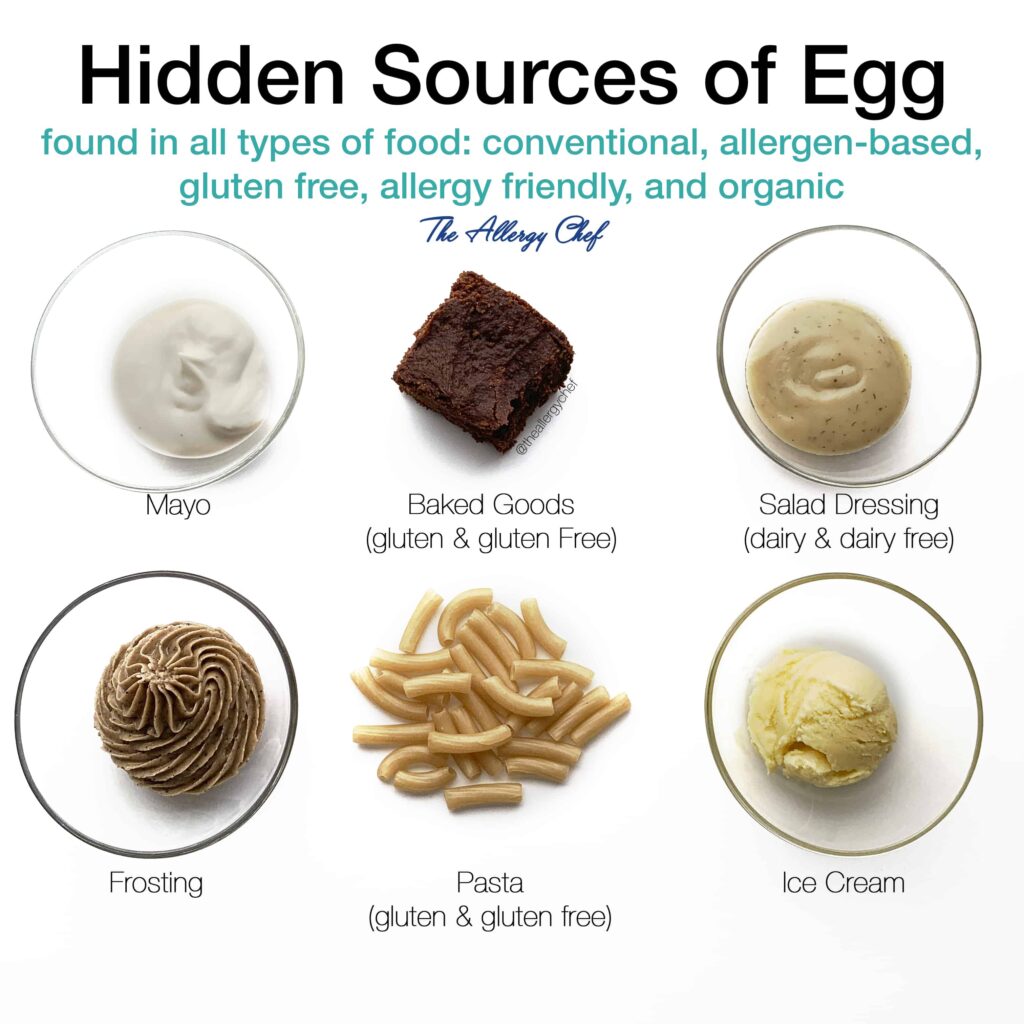
Hidden (and a few obvious) Sources of Egg
Now that you know allll of those facts, here are packaged goods that can contain egg. Remember, by default, if it’s a vegan product, it will be egg free. However, that won’t tell you the status of the ingredient sourcing, equipment, and facility.
- Artificial & Natural Flavor
- Artificial Crab
- Baked Goods of All Sorts (gluten & gluten free varieties): Bread/Breadcrumbs, Brownies, Cookies, Cake/Cupcakes, Graham Crackers, Muffins
- Canned Soup
- Coffee Foam (specialty coffee drinks)
- Custard
- Egg Nog (unless it’s vegan)
- French Toast
- Frosting/Royal Icing
- Ice Cream, including dairy free
- Marzipan
- Mayonnaise
- Meatloaf
- Meringue
- Nougat
- Pancake Batter
- Pasta (both gluten & gluten free varieties)
- Pretzels (hard & soft)
- Protein Powder/Shakes
- Salad Dressing
- Soufflé
Hidden Egg in Fine Dining
Many people are unaware of this but to make a clarified broth, egg is used to create a raft that floats in the broth to attract the impurities. Depending on where you dine, they may or may not think to tell you to avoid specific menu items made with said broth. When you call in advance, ask about these types of menu items.
Additionally, several “fancy” cocktails contain egg white. As someone who doesn’t drink or work with these products, I’m going to encourage you to search online to learn more about the topic if you enjoy cocktails.
Final Thoughts
For the most part, I would personally classify eggs as one of the easier top 9 allergens to avoid. However, I make that statement towards those who can tolerate trace amounts. For everyone else, you’ll still need to call companies before trying products. Let me tell you: it’s extremely time consuming and sometimes they give you the run around.
If you’re struggling with avoiding eggs, or food allergies in general, consider joining RAISE. There are so many resources put together for you, including a list of companies/products that are allergy friendly and using dedicated equipment.
Additional Resources
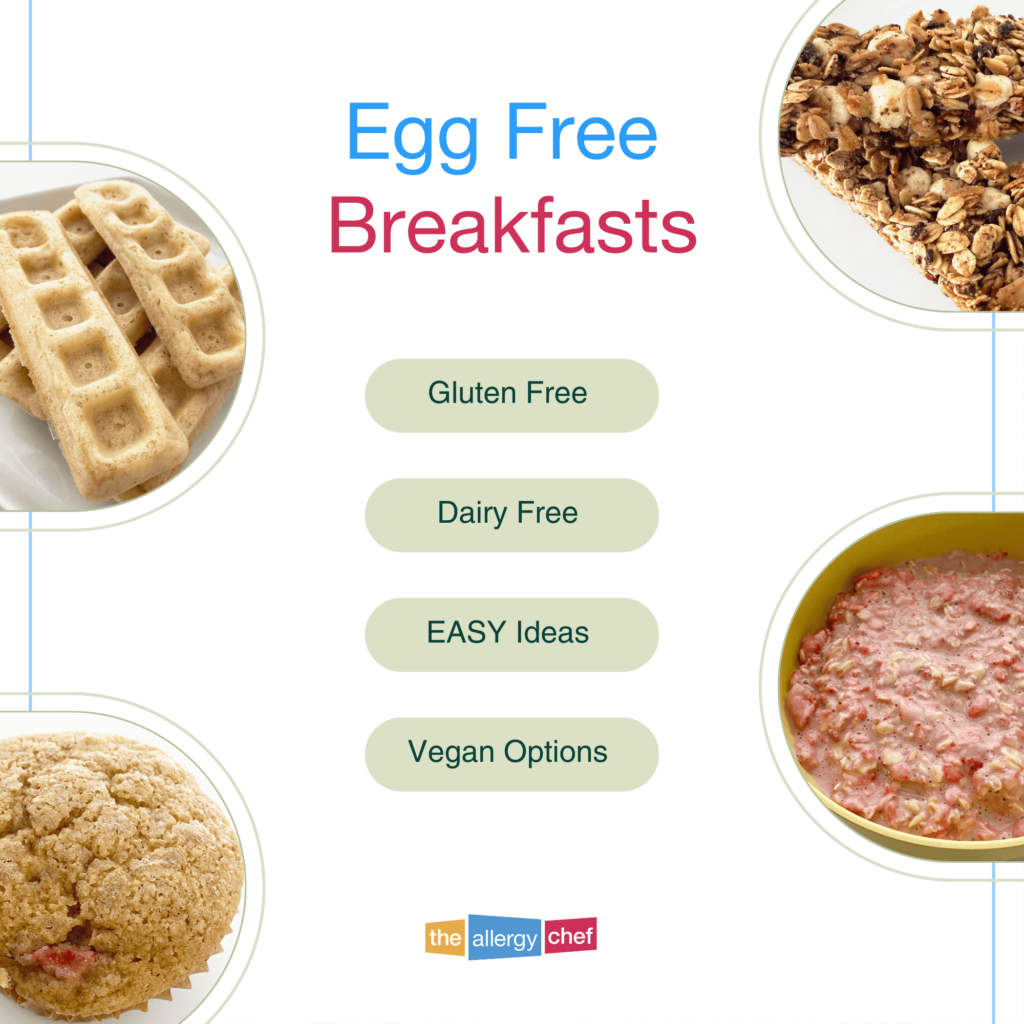 |
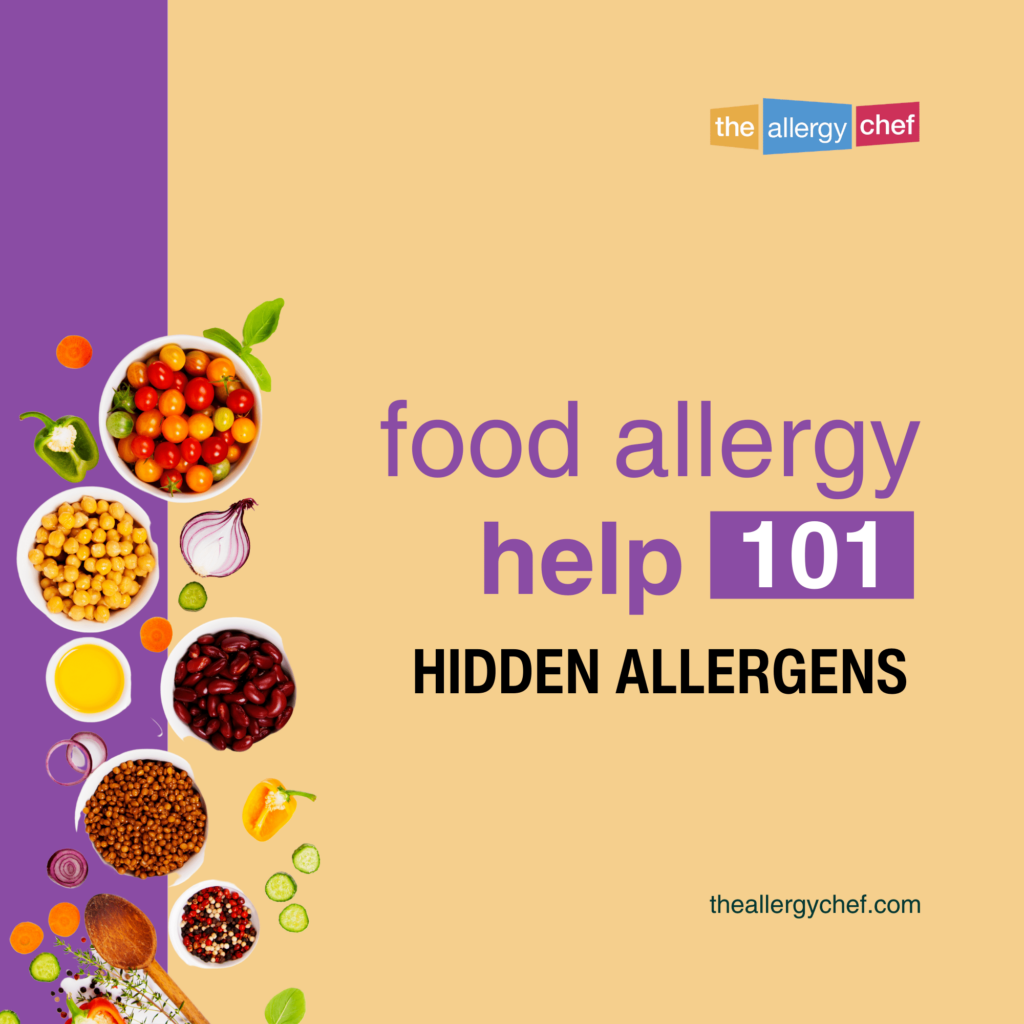 |
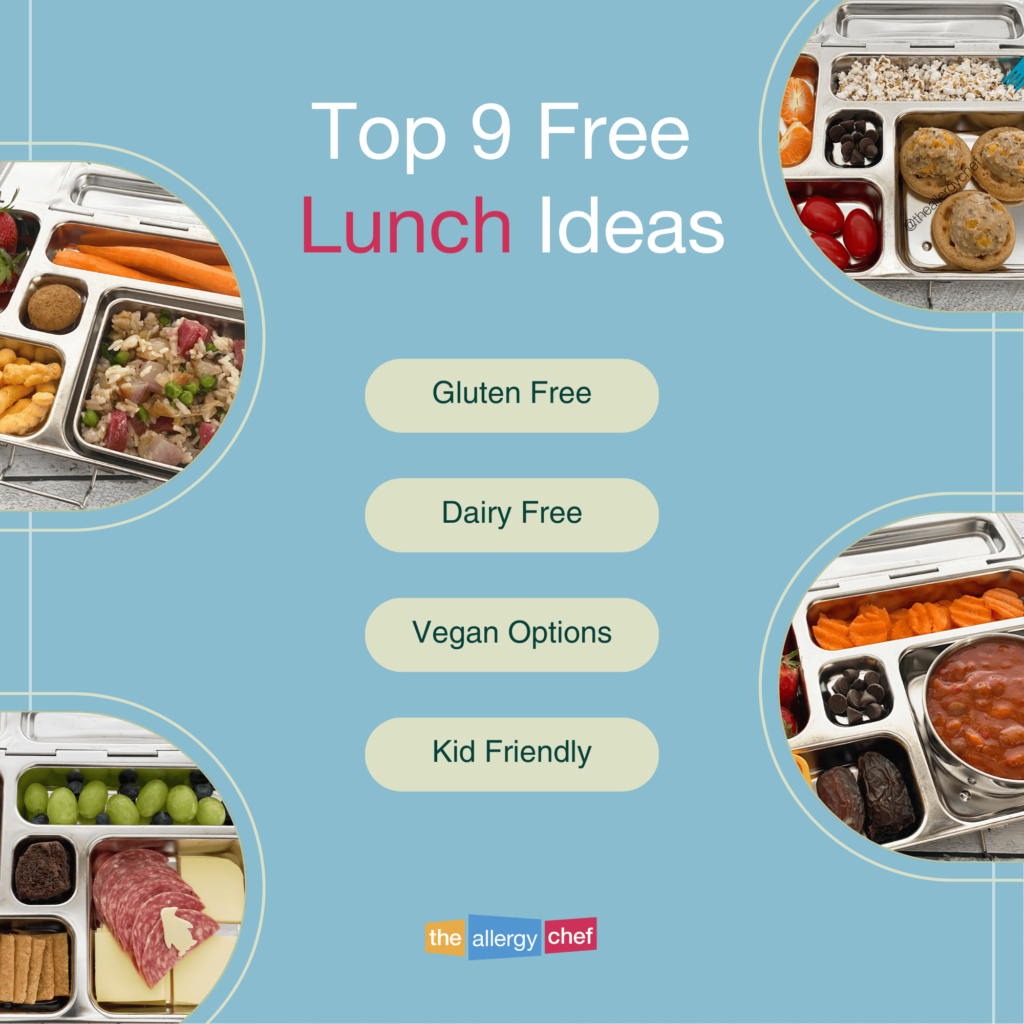 |
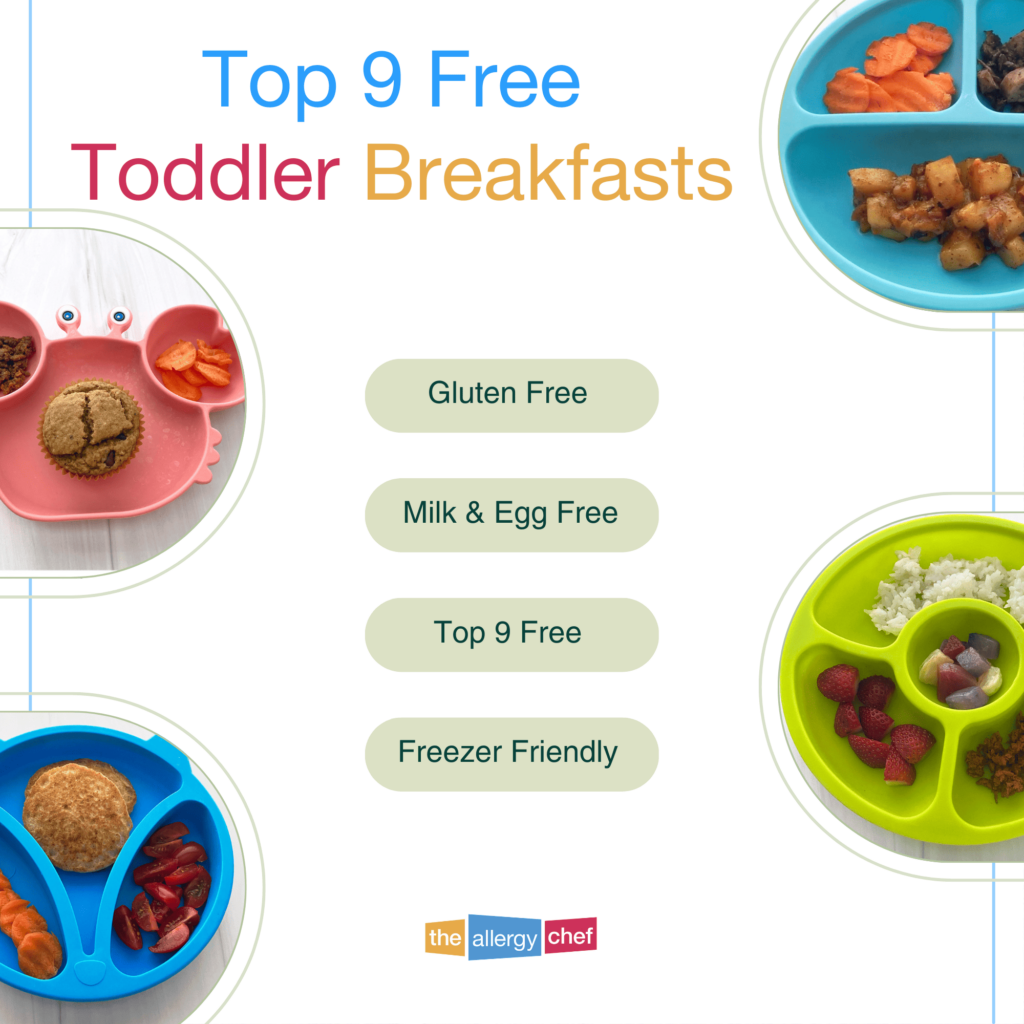 |

